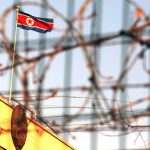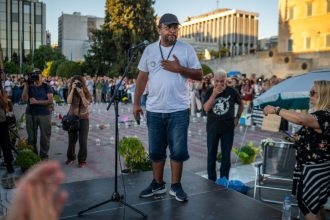Two years after the Hamas massacre that began it, peace in Gaza is still a shore dimly seen. But at least it can be seen now.
The belligerents are talking about ending their monumentally tragic war. President Donald Trump’s comprehensive and fairly balanced peace proposal has brought partial consent from both sides. Negotiations continue through intermediaries. The talking must continue and the killing must end.
Hamas’ concession to return all remaining hostages, living and dead, gives the Israeli people what they most want and need. Israeli Prime Minister Benjamin Netanyahu should accept the chance to end this war.
Although Hamas provoked the war, it is Israel’s military response that has claimed most of the 66,000 Palestinian lives lost in Gaza so far, many of them women and children. The world has seen the pictures and videos and will not soon forget them.
The second anniversary of the unprovoked attack on Oct. 7, 2023 is a moment to take stock of the war’s profound consequences.
Prolonging the misery
Not the least of them is how it has divided Israel itself and exposed it to accusations of genocide. There have been at least 37 military suicides, three times as many as the last time Israel fought in Gaza. The Israeli military has identified 913 fallen soldiers.
With tactics that have prolonged and deepened the misery in Gaza, Israel has squandered much of the sympathy that came with the atrocities Hamas committed two years ago.
Allies like France, the United Kingdom and Canada have broken with Israel and the U.S. to recognize a Palestinian state that has yet to exist.
Support for Israel in America has cratered. In a New York Times/Siena poll, 34% sided with Israel and 35% with Palestinians. A majority now opposes sending more aid to Israel.
The worst aspect of the war is a sharp spike in antisemitism around the world and in particular the U.S. That doesn’t seem to concern Netanyahu nearly as much as it should.
Rampant antisemitism
Deadly examples, such as the attack on an English synagogue last week and the murder of two young Israeli embassy staffers in Washington five months ago, have multiplied. Overall reports have more than doubled.
The Anti-Defamation League (ADL) recorded 9,534 incidents in the U.S. last year, a more than threefold increase in five years. An ADL study reported that 46% of adults worldwide harbor “deeply entrenched” antisemitic attitudes, double the number of a decade ago.
Antisemitism, the world’s oldest, deadliest and most stubborn bigotry, hardly needs provocations, but flourishes from them. It did so right after Oct. 7, no matter that Israel was the victim of a dastardly and unprovoked terrorist attack that killed some 1,200 people, mostly civilians, took 251 hostages and left behind undisputed evidence of mayhem, mutilation and rape.
It is hard for Americans to accept — and our government has drawn too many wrong inferences from it — why so many in the Arab world, and some even here, applauded that.
Israel’s unjust occupation
There’s more history to it than would fit here. Most importantly, Israel is widely seen as unjustly occupying the West Bank, where 2.8 million Palestinians live under military control and the threat of outright annexation.
Israel keeps encroaching on the West Bank with new, expanded housing developments. Fanatical settlers claiming a mandate from God continue to murder Arab residents and confiscate their land, confident that they won’t be punished. It is all aimed at precluding a self-governing Palestinian state.
Successive American administrations have warned Israel against absorbing the West Bank, which would make the country an apartheid state in all but name.
Trump’s commitment to the historic U.S. policy was in doubt, so it was encouraging to hear him say he would “not allow” Israel to annex it.
Trump’s peace plan, drafted with significant help from former British Prime Minister Tony Blair, excludes Israeli reoccupation of Gaza. It keeps that distressed land for the people who have lived there.
Notably, it also revives the faded hope for a two-state solution, which almost everyone outside Israel recognizes as the only viable long-range path to an enduring peace. The plan itself says that if it’s carried out, “the conditions may finally be in place for a credible pathway to Palestinian self-determination and statehood, which we recognize as the aspiration of the Palestinian people.”
However tentative, the phraseology was more than Netanyahu and his extremist coalition partners wanted to hear. It behooves them to accept that America’s leadership is constructive and that our military aid and our patience have limits.
Other Arab nations are enthusiastic over the plan and, critically, are pressing Hamas to accept it. That would be a heavy lift for Hamas, because it would exclude the terrorist organization from any role in continuing to govern Gaza. But even Hamas should be able to grasp that the war it started is one that it cannot win, and that the people of Gaza, who know who’s to blame, wish to be rid of their oppressive rulers.
As for Israel, initial polls show that its citizens overwhelmingly favor Trump’s plan, by as much as 72% in one survey. The time has never been more right to give peace a chance.
_____









